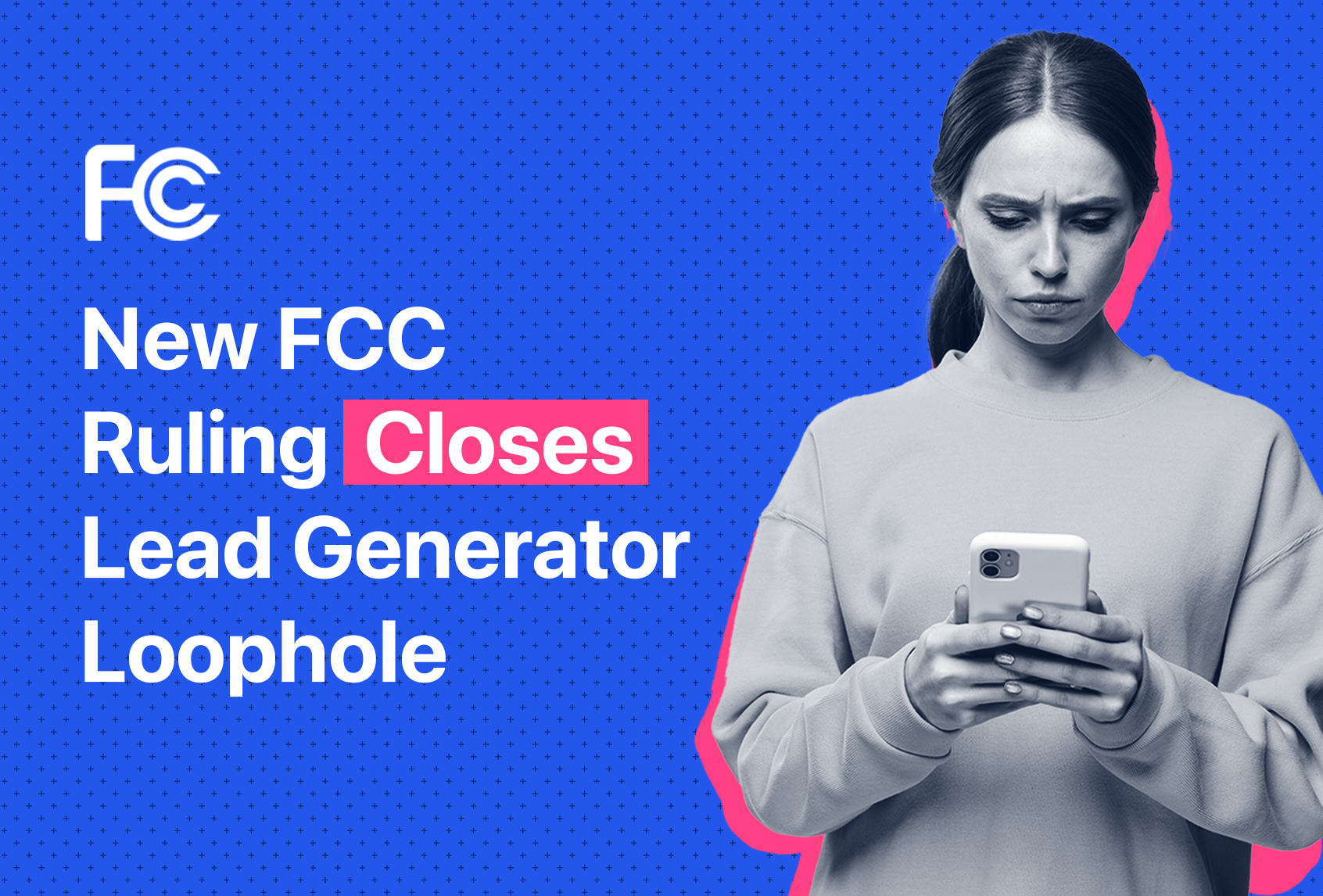

 Manage Events
Provide an easier way for people to register and attend
Manage Events
Provide an easier way for people to register and attend
 How Meera Is Different
Learn why more businesses are switching to AI text messaging
How Meera Is Different
Learn why more businesses are switching to AI text messaging
.png?width=512&height=512&name=guru%20(1).png) Expert Guidance
Discover how working with a Meera AI expert helps you reach your goals
Expert Guidance
Discover how working with a Meera AI expert helps you reach your goals
 Five9
Five9
.png?width=199&height=109&name=salesforce-logo1-removebg-preview%20(1).png) Salesforce
Salesforce
 Hubspot
Hubspot
 Events
Meet our team face to face
Events
Meet our team face to face

It’s official — the FCC’s latest ruling on December 13th will officially close the “lead generator loophole.”
This move is part of the FCC’s ongoing efforts to improve consumer privacy and transparency. It also directly aligns with the FCC’s commitment to combating robo-spammers.
Some of the major changes included “red flagging” robo-texting numbers, creating a Do-Not-Call (DNC) list for texting, and encouraging an opt-in stance for delivering email-to-text messages.
So, what’s changed and how will this affect you? Here’s everything you need to know.
The first major change will allow the FCC to “red flag” specific numbers. Mobile carriers will need to block texts from any red-flagged number.
Additionally, a new DNC list will be created specifically for texting. This ruling will make it illegal to send any marketing texts to numbers on the list.
Finally, providers will be encouraged to let users opt-in to email-to-text messages — a move that could heavily impact the effectiveness of this channel.
The ruling also saw the closure of the lead generator loophole — a tactic robocallers and texters used to bombard consumers with unwanted advertisements.
New changes will require comparison shopping websites and lead generators to obtain individual consumer consent one seller at a time. Previously, single consent was the only requirement.
The FCC also opened the door to public commentary exploring additional steps that the agency may take against robotexts.
They are also exploring creating a model that resembles STIR/SHAKEN specifically for text messaging.